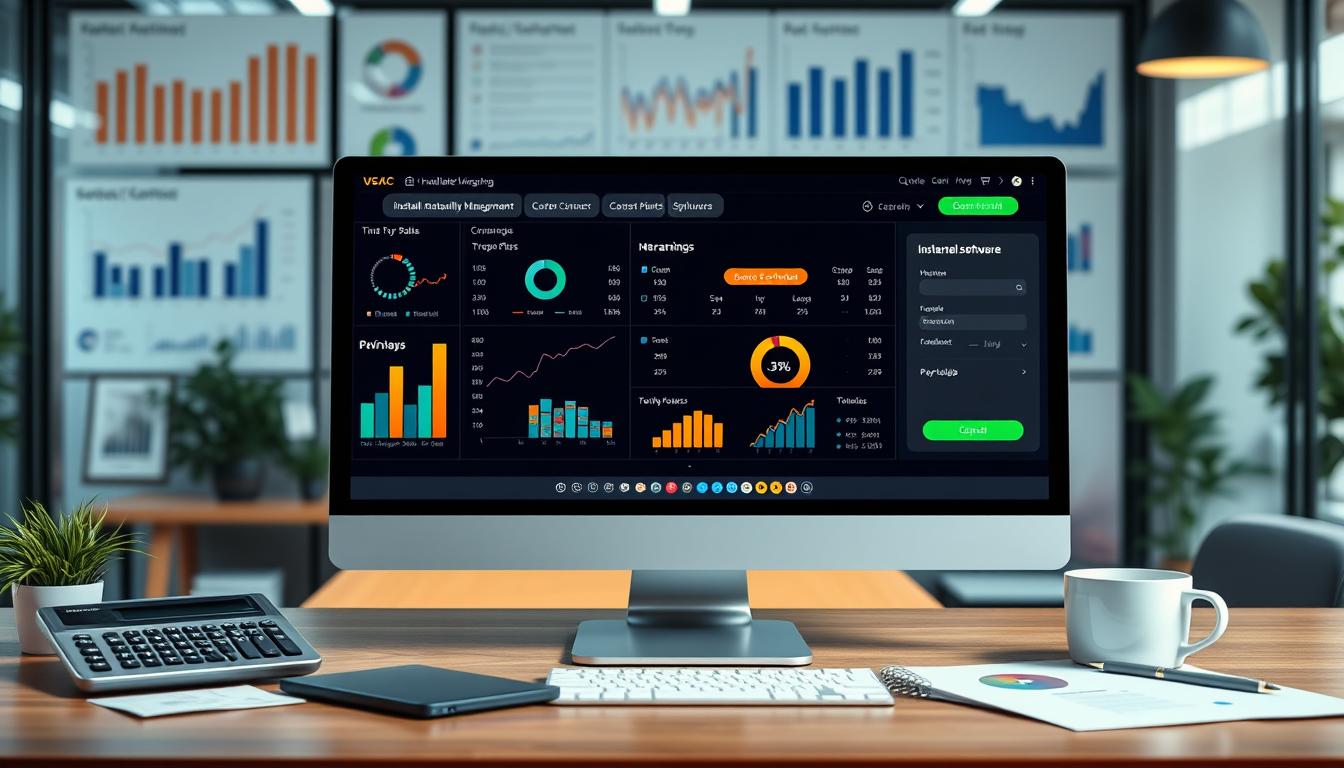In the dynamic landscape of modern business, maintaining efficient operations, optimizing resources, and staying competitive is paramount. To address these challenges, many organizations have turned to Enterprise Resource Planning (ERP) software as a comprehensive solution. ERP software is an integrated suite of applications designed to streamline various business processes, enhance collaboration, and provide actionable insights for better decision-making. Let’s delve into the key Features of ERP that make ERP software an indispensable tool for businesses of all sizes and industries.
List of Key Features Of ERP Software:
1. Inventory Management:
Efficiently utilizing features of ERP, businesses can effectively track raw materials, work-in-progress, and finished goods. Maintain optimal stock levels, reduce excess inventory, and prevent stockouts.
2. Production Planning and Scheduling:
Leveraging the features of ERP, companies can create production schedules based on orders, resources, and capacity. Minimize downtime, improve resource allocation, and enhance overall production efficiency.
3. Bill of Materials (BOM) Management:
Manage complex product structures by defining BOMs, ensuring accurate materials allocation, and enabling easy updates when product designs change.
4. Quality Control:
Employing the features of ERP, companies can seamlessly implement rigorous quality checks throughout multiple stages of production. By leveraging the capabilities of centralized data management and process integration, ERP software enables organizations to record and track quality data effectively.
5. Supplier and Purchase Order Management:
Leveraging the inherent features of ERP, businesses can seamlessly streamline procurement processes, generate purchase orders, and track supplier performance. Maintain good relationships with suppliers and manage lead times effectively.
6. Sales and Order Management:
Harnessing the features of ERP, companies can adeptly capture customer orders, efficiently manage order fulfillment, and meticulously maintain order history. Through process integration and centralized data management, ERP software empowers organizations to ensure timely delivery and accurate order processing.
7. Financial Management:
Integrate financial modules such as accounting, invoicing, and cost tracking. Monitor costs, revenue, and profitability associated with manufacturing operations.
8. Real-time Data Analytics and Reporting:
Access customizable dashboards and reports that provide insights into production, inventory, sales, and financial performance. Make informed decisions based on real-time data.
9. Resource and Capacity Planning:
Utilizing the features of ERP, businesses can efficiently Optimize resource allocation, including machinery, labor, and production facilities. Ensure that production capacity aligns with demand.
10. Traceability and Compliance:
Track products throughout their lifecycle for regulatory compliance and recall purposes. Maintain detailed records of materials used, processes applied, and dates of production.
11. Mobile Compatibility:
By leveraging the features inherent in ERP, organizations can empower managers and employees with seamless on-the-go access to critical information via mobile devices. This functionality facilitates efficient remote monitoring and enables timely decision-making.
12. Integration Capabilities:
Leveraging the inherent features of ERP, businesses can strategically design an intuitive and user-friendly interface. This design philosophy revolves around reducing the learning curve for employees, simplifying software use, and fostering seamless adoption.
13. User-Friendly Interface:
Leveraging the inherent features of ERP, businesses can strategically design an intuitive and user-friendly interface. This design philosophy revolves around reducing the learning curve for employees, simplifying software use, and fostering seamless adoption.
14. Customization and Scalability:
Leveraging the features of ERP, businesses can seamlessly embrace customization, tailoring the software to their distinct manufacturing processes and workflows. Through process integration and centralized data management, ERP software provides a versatile platform for adapting to specific requirements.
15. Security and Data Privacy:
Implementing the features inherent in ERP, organizations can establish and enforce robust security measures, safeguarding sensitive business data and valuable intellectual property from unauthorized access and potential breaches.
16. Training and Support:
Utilizing the features of ERP, organizations can offer comprehensive training resources and exceptional customer support to assist users in maximizing the potential of the software and addressing any challenges that may emerge.
17. Centralized Data Management:
Features of ERP software serves as a centralized repository for all essential business data. From customer information and sales transactions to inventory levels and financial records, ERP systems ensure that data is consistently updated and readily accessible across departments. This unified data source minimizes data duplication, reduces errors, and facilitates real-time collaboration.
18. Integrated Business Processes:
One of the core strengths of ERP software is its ability to integrate various business processes into a cohesive framework. Modules for different functions like finance, human resources, procurement, inventory management, and more are interconnected. This integration eliminates data silos and supports end-to-end business workflows, promoting efficiency and accuracy.
19. Automation of Routine Tasks:
ERP software automates routine and repetitive tasks, freeing up employees to focus on higher-value activities. For instance, tasks like generating invoices, processing payroll, and managing purchase orders can be automated, reducing manual errors and saving valuable time.
20. Real-time Analytics and Reporting:
ERP systems provide robust reporting and analytics capabilities, offering insights into key performance indicators (KPIs) and trends. With accurate and up-to-date data, decision-makers can make informed choices quickly. Customizable dashboards and reports help visualize data in meaningful ways, facilitating strategic planning and resource allocation.
21. Enhanced Collaboration:
Effective communication and collaboration are critical in a modern business environment. ERP software fosters collaboration by enabling employees from different departments to access the same data and work together seamlessly. This feature is especially important for remote or geographically dispersed teams.
22. Supply Chain Management:
ERP systems play a pivotal role in managing the supply chain. From procurement and inventory management to order fulfillment and demand forecasting, ERP software streamlines the entire supply chain process. This leads to improved inventory control, reduced stockouts, and better customer satisfaction.
23. Regulatory Compliance:
In today’s highly regulated business landscape, adherence to compliance standards stands as a paramount responsibility. Leveraging its intrinsic features, ERP software emerges as a crucial ally in the realm of compliance management. By seamlessly integrating processes and employing centralized data management, ERP systems incorporate specialized functionalities dedicated to meticulous tracking and comprehensive reporting of pertinent data.
24. Scalability and Flexibility:
As businesses grow and evolve, their software needs must adapt as well. ERP systems are designed to scale with the organization’s requirements. Whether it’s adding new users, incorporating additional modules, or integrating with third-party applications, ERP software provides the flexibility to accommodate changing business dynamics.
25. Customer Relationship Management (CRM):
Many ERP systems include CRM functionalities that help manage customer interactions, track sales leads and enhance customer service. This integration allows organizations to maintain a holistic view of customer data, leading to personalized customer experiences and improved customer retention.
26. Cost and Efficiency Benefits:
While investing in ERP software may require a significant upfront cost, the long-term benefits outweigh the initial investment. By streamlining processes, reducing manual labor, minimizing errors, and enhancing decision-making, ERP software ultimately leads to improved operational efficiency and cost savings.
27. Conclusion:
Enterprise Resource Planning (ERP) software stands as a cornerstone in modern business operations, offering a suite of features that streamline processes, enhance collaboration, and provide valuable insights. From centralized data management to real-time analytics, ERP systems empower organizations to navigate the complex challenges of today’s business landscape with agility and confidence. As technology continues to advance, ERP software will undoubtedly evolve, playing an even more pivotal role in shaping the future of business.



